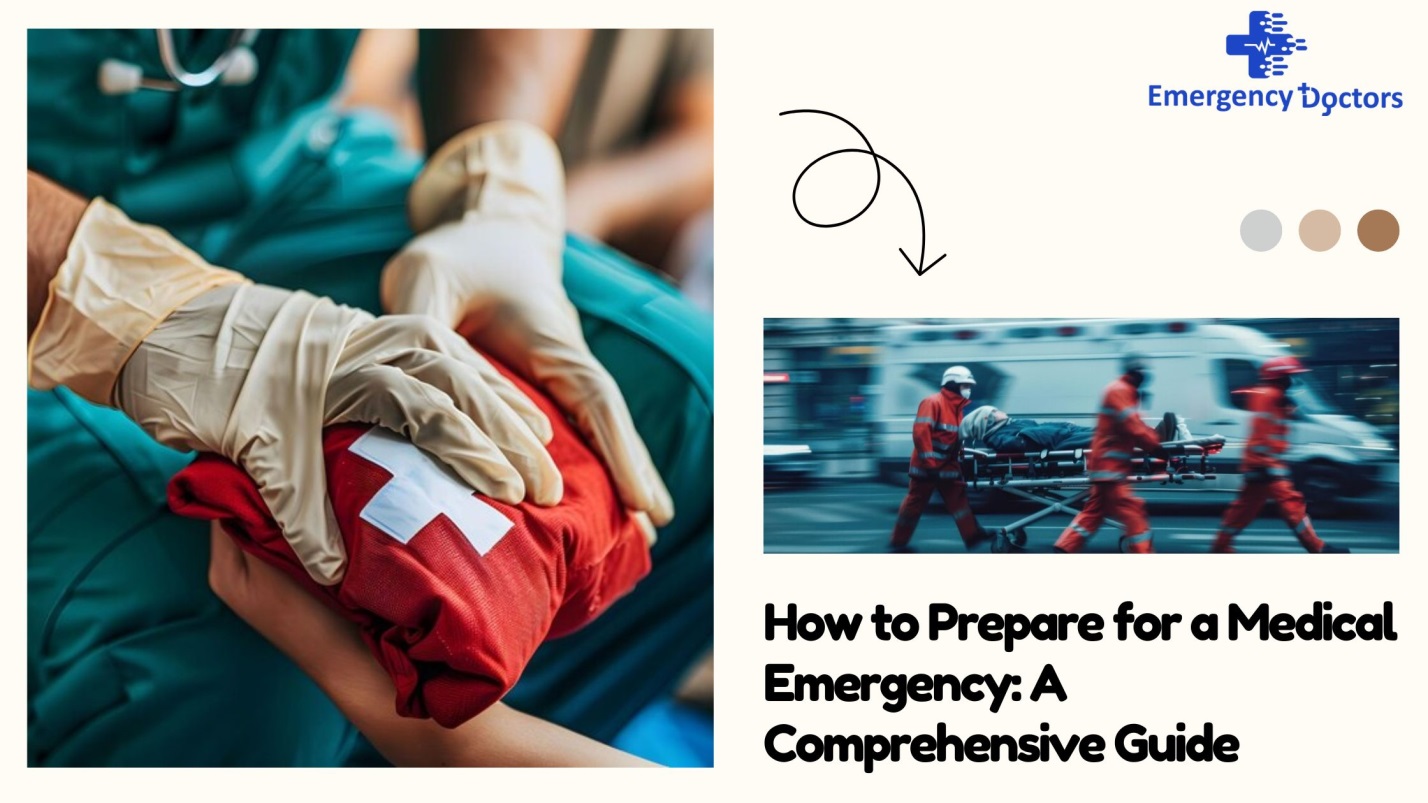
Medical emergencies can happen at any time and often without warning. Being prepared can make a significant difference in how effectively you can respond and provide care. This comprehensive guide from Emergency Doctors will help you prepare for such situations, ensuring you can handle them with confidence and composure. 1. Understand Common Medical Emergencies The first step in preparing for a medical emergency is understanding what constitutes one. Common medical emergencies include heart attacks, strokes, severe allergic reactions, traumatic injuries, and respiratory distress. Knowing the signs and symptoms of these conditions can help you recognize them quickly and take appropriate action. 2. Create an Emergency Plan Having a well-thought-out emergency plan is crucial. This plan should include: • Emergency Contacts: List phone numbers for local emergency services, family members, neighbors, and your healthcare provider. • Nearest Hospital: Know the location and quickest route to the nearest hospital or emergency room. • Medical Information: Keep a document with essential medical information for each family member, including allergies, current medications, medical conditions, and insurance details. 3. Assemble an Emergency Kit An emergency kit can be a lifesaver during a medical crisis. Here’s what to include: • First Aid Supplies: Bandages, gauze, antiseptic wipes, adhesive tape, scissors, tweezers, and a digital thermometer. • Medications: Over-the-counter pain relievers, antihistamines, and any prescription medications. • Medical Equipment: Blood pressure monitor, glucose meter, and a CPR mask. • Personal Information: Copies of health insurance cards, medical records, and identification. • Emergency Numbers: A list of emergency contacts and instructions for basic first aid procedures. 4. Learn Basic First Aid and CPR Knowledge of basic first aid and CPR can be invaluable in a medical emergency. Consider taking a certified course through organizations like the Red Cross or a local hospital. Skills to focus on include: • CPR: Cardiopulmonary resuscitation for adults, children, and infants. • First Aid: Treating burns, cuts, fractures, and administering the Heimlich maneuver for choking. • AED Use: How to operate an automated external defibrillator. 5. Stay Informed About Health Conditions If you or a family member has a chronic health condition, educate yourself about potential emergencies related to that condition. For example, if someone has asthma, learn how to handle severe asthma attacks. If someone has diabetes, understand the signs of hypoglycemia and hyperglycemia and how to manage them. 6. Practice Emergency Drills Regularly practicing emergency drills can help everyone in your household know what to do in case of a medical crisis. These drills should cover: • Calling 911: Practice what to say when calling emergency services. • Role-Playing: Act out different scenarios, such as performing CPR or helping someone who is choking. • Escape Routes: Ensure everyone knows the quickest way to get to the hospital. 7. Keep Emergency Doctors Contact Information Handy Having quick access to professional medical advice can be crucial. Make sure you have the contact information for Emergency Doctors readily available. This can include phone numbers, website links, and email addresses. In many cases, quick consultation with a medical professional can provide life-saving advice before help arrives. Conclusion Preparing for a medical emergency involves understanding common emergencies, creating a plan, assembling an emergency kit, learning first aid, staying informed, practicing drills, and having quick access to professional medical advice from Emergency Doctors. By taking these steps, you can ensure that you are ready to handle medical emergencies effectively, providing crucial support and care when it’s needed most.